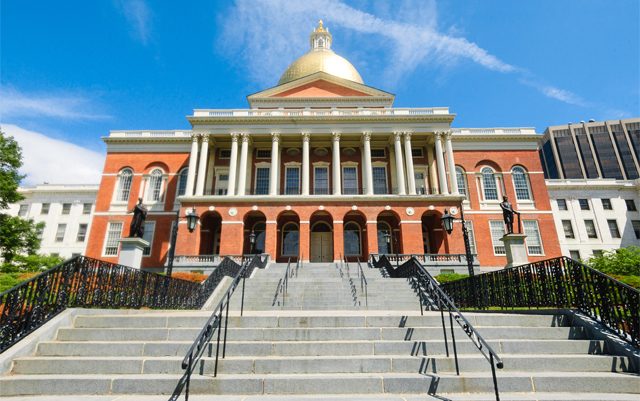Since Massachusetts voters approved a law to legalize the use, possession and sale of cannabis in last November’s election, lawmakers have been looking at ways to “improve” that law. From the start they pushed back recreational sales of cannabis by six months to summer 2018, and it didn’t stop there. Some lawmakers wanted to further restrict the number of plants allowed to be grown and raise taxes, among other issues.
Luckily, only part of those changes made it into the final version of the bill approved by legislature – the tax hike from 12 percent to 17-20 percent. However, as Governor Charlie Baker signed the bill into law, he made it clear that he was only doing so to support the will of the voters, not because he thought it was a good idea to do so.
“I don’t support this,” Baker said to reporters in his ceremonial office at the State House. “I worry terribly about what the consequences over time will be.”
“But look, the people voted this,” he added. “And I think it’s really important that we put a program in place that delivered a workable, safe, productive recreational marijuana market for them here in Massachusetts.”
Looking at other states that have legalized – Colorado, Washington, Oregon, and Alaska – so far there have been no big negative impacts from legalization. Rather they have seen less crime, more tax revenue and have created countless jobs within their respective states. The main goals of legalization are to ensure a safe product, and to end the illegal sales of cannabis and unnecessary criminalization of the plant. The hope of ending the black market sales of cannabis was the reason that the Massachusetts marijuana law had been written with a 12 percent tax rate – but lawmakers didn’t think the tax was high enough to make up for the cost of creating the industry.
“The tax rate, we think, is too high,” said Jim Borghesani, a spokesman for legalization advocates. “We put it at 12 percent for the specific reason that we wanted to dampen down the illicit market to the greatest extent we could.”
Whether or not the tax hike will hinder the ability of the legal market to stamp out the illegal one will not be seen for almost another year still. Now that the governor has signed this bill into law, the state can finally start working towards getting regulations in place for businesses in the industry, begin taking applications and awarding licenses so that they can stick to their expected deadline of having sales begin by next summer.






